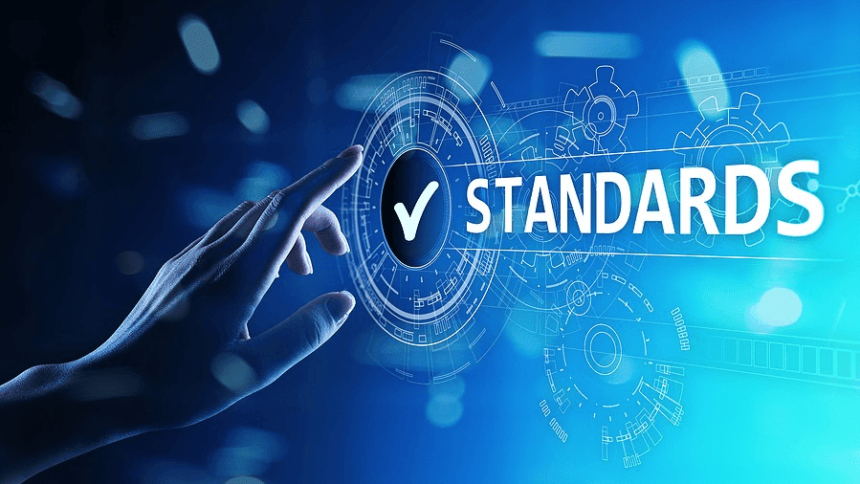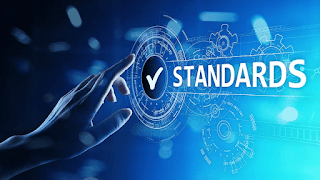High quality requirements function the compass guiding industries towards excellence. In at the moment’s aggressive market, attaining trade certification is paramount. This text serves as a roadmap for understanding the journey towards trade certification and the importance of high quality requirements in varied sectors.
High quality assurance is the inspiration of all profitable companies. It encompasses systematic actions to make sure services or products meet specified necessities. Business certification, reminiscent of ISO certification, validates adherence to those requirements and solutions the query, “What’s ISO certification?” It signifies that a company has carried out efficient high quality administration techniques in keeping with worldwide requirements, making certain consistency, reliability, and buyer satisfaction. By acquiring the certification, companies exhibit their dedication to delivering high-quality services or products whereas adhering to globally acknowledged benchmarks for excellence.
ISO requirements, developed by the Worldwide Group for Standardization, are globally acknowledged benchmarks for high quality administration. These requirements present frameworks for organizations to reinforce effectivity, scale back errors, and enhance buyer satisfaction. Understanding ISO requirements is essential for organizations looking for certification. It includes deciphering complicated terminology and adapting requirements to go well with particular trade necessities. They’ll streamline processes, reduce waste, and optimize useful resource utilization by comprehensively understanding and implementing ISO requirements.
Business certification indicators credibility and competence to stakeholders. It demonstrates a company’s dedication to persistently delivering high-quality services or products. Furthermore, certification opens doorways to new markets and enhances competitiveness. In an period the place shopper belief is vital, trade certification serves as a robust advertising device. It assures prospects of product high quality, reliability, and adherence to internationally acknowledged requirements. This instills confidence in customers and strengthens model fame, driving buyer loyalty and repeat enterprise.
The trail to trade certification includes meticulous planning and implementation. It begins with assessing organizational wants and figuring out related ISO requirements. Subsequently, organizations develop processes and documentation to align with these requirements. Implementation of a powerful high quality administration system (QMS) is key to the certification course of. This entails defining high quality goals, establishing processes, and documenting procedures to make sure compliance with ISO requirements. By means of systematic implementation and integration of QMS into organizational tradition, firms lay the groundwork for profitable certification.
High quality administration techniques (QMS) kind the spine of ISO certification. QMS encompasses insurance policies, procedures, and processes aimed toward attaining high quality goals. Implementation includes coaching personnel, documenting procedures, and conducting inner audits. Efficient implementation of QMS fosters a tradition of high quality inside the group. It empowers workers to take possession of high quality processes, determine alternatives for enchancment, and attempt for excellence of their respective roles. They domesticate a proactive strategy to high quality administration by embedding high quality ideas into every day operations.
Inside audits are crucial to evaluating QMS effectiveness. They contain systematic examination of processes, documentation, and compliance with high quality requirements. Inside audits determine areas for enchancment and guarantee ongoing conformity. By means of common inner audits, organizations can determine deviations from established procedures and deal with non-conformities promptly. This proactive strategy permits steady refinement of QMS, driving organizational effectivity and effectiveness. Moreover, inner audits facilitate data sharing and finest apply dissemination throughout departments, fostering a tradition of steady studying and enchancment.
Accredited certification our bodies carry out exterior audits to evaluate a company’s compliance with high quality requirements. These audits contain thorough evaluations of QMS implementation, documentation, and efficiency. Participating exterior auditors requires thorough preparation and collaboration with inner stakeholders. The corporations should exhibit transparency, accuracy, and adherence to high quality requirements throughout exterior audits. By partaking exterior auditors, firms achieve invaluable insights into their QMS effectiveness and determine areas for enhancement. Exterior audits validate organizational dedication to high quality excellence and supply a pathway to steady enchancment.
Non-conformities might come up throughout audits, highlighting deviations from high quality requirements. It’s important for organizations to deal with these non-conformities promptly and implement corrective actions to keep up certification. Addressing non-conformities requires a scientific strategy involving root trigger evaluation, corrective motion planning, and implementation of preventive measures. By addressing non-conformities successfully, organizations exhibit their dedication to high quality enchancment and guarantee ongoing compliance with ISO requirements. This proactive strategy mitigates dangers, enhances operational effectivity, and safeguards organizational fame.
ISO certification isn’t a one-time success however a journey of continuous enchancment. Organizations should frequently monitor and consider their QMS, determine alternatives for enhancement, and adapt to evolving trade necessities. Continuous enchancment is ingrained within the ideas of ISO requirements, emphasizing the significance of suggestions, measurement, and corrective motion. By fostering a tradition of continuous enchancment, organizations can drive innovation, optimize processes, and improve buyer satisfaction. Continuous enchancment permits corporations to stay forward of the competitors, reply to market dynamics, and obtain sustainable progress in the long run.
The advantages of ISO certification lengthen past compliance. It develops a tradition of high quality all through the group, enhances buyer satisfaction, and improves operational effectivity. Furthermore, certification enhances credibility, fosters belief with stakeholders and drives enterprise progress. By recognizing its benefits, organizations can receive a aggressive benefit within the market. It helps them to develop into new markets, attract new shoppers, and fortify their bonds with present stakeholders. Finally, ISO certification serves as a catalyst for organizational success, driving steady enchancment and excellence in high quality administration.
High quality assurance is greater than a regulatory requirement; it is a elementary pillar of sustainable enterprise success. By prioritizing high quality all through each side of operations, organizations guarantee buyer satisfaction, loyalty, and retention. High quality assurance processes validate adherence to requirements and function proactive measures to forestall defects and errors, finally saving time and sources. Embracing high quality assurance fosters a tradition of excellence inside the agency, the place workers are empowered to take possession of their work and attempt for steady enchancment. As companies navigate the complexity of the present market, high quality assurance turns into a strategic crucial for sustaining competitiveness and attaining long-term viability.
Navigating the trail to trade certification requires dedication, diligence, and a dedication to high quality. Understanding the importance of high quality requirements and adhering to ISO certification processes are important for organizational success in at the moment’s aggressive panorama. So, what’s ISO certification? It’s a globally acknowledged customary that validates a company’s adherence to stringent high quality administration ideas and practices. By means of the implementation of those high quality administration ideas and a tradition of continuous enchancment, corporations can unlock alternatives for progress, innovation, and excellence in at the moment’s dynamic enterprise atmosphere.










